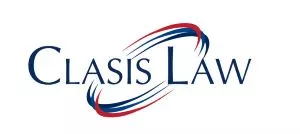The primary objective behind the enactment of the Negotiable Instruments Act, 1881 ("NI Act") was to engender binding and authoritative rules of law relating to negotiable instruments1 so that the claims upon mercantile instruments could be equated with ordinary goods, passing from hand to hand. While terming the law relating to negotiable instruments as the law of commercial world, the Hon'ble Apex Court in Shri Ishar Alloy Steels Ltd. v. Jayaswals Neco Ltd.2 observed that the provisions under the said enactment are aimed to, "facilitate the activities in trade and commerce, making provision of giving sanctity to the instruments of credit which could be deemed to be convertible into money and easily passable from one person to another. In the absence of such instruments, the trade and commerce activities were likely to be adversely affected as it was not practicable for the trading community to carry on with it the bulk of the currency in force." Significantly, in an attempt to expansively delineate the definitions, modes of negotiation, payments, etc., of multifarious instruments of credit, NI Act endeavours to not only encapsulate specific provisions dealing with these aspects, rather, also envisions penal provisions in the event of dishonour of cheque(s) under Chapter XVII (Sections 138 to 148) thereof. Explicably, reasons behind the insertion of penal provisions under the NI Act may reasonably be appreciated to be directed towards the encouragement of3, "culture of use of cheques and enhancing the credibility of the instrument... aimed at early disposal of cases relating to dishonour of cheques, enhancing punishment for offenders, introducing electronic image of a truncated cheque and a cheque in the electronic form as well as exempting an official nominees director from prosecution under the Act." Notably, prior to the penalization of the incidents of dishonour of cheques under the NI Act, the only remedy available with a person aggrieved by such defaults was to pursue 'time-consuming' recovery proceeding(s), by filing civil suit(s). However, with the inclusion of Chapter XVII under the NI Act, it is, inter alia, endeavoured to4, "ensure faith in the efficacy of banking operations and credibility in transacting business on cheques. It was to provide a strong criminal remedy in order to deter the high incidence of dishonour of cheques and ensure compensation to the complainant."
Appositely, one of the essential pre-requisites for the initiation and maintainability of penal proceedings under Section 138 of the NI Act is that the cheque in question must have been issued by a drawer5/ accused against discharge of "legally recoverable6" debt or liability and, as a corollary7, recourse to the said provisions cannot be taken to in the cases of illegal or unaccounted amount(s). Withal, it needs to be appreciated that in event of concurrence of this vital precondition, law encumbers criminality for the offence under the NI Act against any person drawing/ issuing cheque(s), who may not, even otherwise, be directly under a legal/ contractual repayment obligation. In fact, in this regard, the Hon'ble Apex Court in Anil Sachar v. Shree Nath Spinners (P) Ltd.8, overtly avowed, "If the cheque is given towards any liability or debt which might have been incurred even by someone else, the person who is the drawer of the cheque can be made liable under Section 138 of the Act." Remarkably, even prior to the said declaration, the Hon'ble Court, in ICDS Ltd. v. Beena Shabeer9, while affirming the maintainability of proceedings under Section 138 of the NI Act against a guarantor of loan, being a drawer of cheque in question, reasoned, "the language of the statute depicts the intent of the law-makers to the effect that wherever there is a default on the part of one in favour of another and in the event a cheque is issued in discharge of any debt or other liability there cannot be any restriction or embargo in the matter of application of the provisions of Section 138 of the Act. "Any cheque" and "other liability" are the two key expressions which stand as clarifying the legislative intent so as to bring the factual context within the ambit of the provisions of the statute. Any contra-interpretation would defeat the intent of the legislature." Justifiably, even in the cases where the principal borrower and the guarantor may, though, be jointly and/ or severally liable under the civil law/ recovery proceeding, the provisions under Section 138 NI Act can, however, be invoked only against the drawer of cheque. As a matter of fact, the Hon'ble Apex Court, quite recently, in Alka Khandu Avhad v. Amar Syamprasad Mishra10, while dealing with a situation of like-kind, inter alia, declared, "Section 138 of the NI Act does not speak about the joint liability. Even in case of a joint liability, in case of individual persons, a person other than a person who has drawn the cheque on an account maintained by him, cannot be prosecuted for the offence under Section 138 of the NI Act. A person might have been jointly liable to pay the debt, but if such a person who might have been liable to pay the debt jointly, cannot be prosecuted unless the bank account is jointly maintained and that he was a signatory to the cheque."
Strikingly, while on one hand, the provisions under Section 138 of the NI Act accentuate the indispensability of existence of a "legally recoverable" debt or liability for the initiation of cheque dishonur proceedings, on the other hand, Section 13911 of the said enactment, proclaims, "unless the contrary is proved, that the holder of a cheque received the cheque, of the nature referred to in Section 138 for the discharge, in whole or in part, of any debt or other liability." Ergo, considering that law places primary onus on an accused to rebut the presumption against existence of legally recoverable debt or liability in cheque dishonour case(s), it is quite understandable that arguments/ contentions are frequently raised that no liability under Section 138 of the NI Act would arise when the cheque in question had been issued against/ security/ as security deposit. In fact, under such circumstances, it is unsurprisingly reasoned that the since the issuance of security/ post-dated cheque(s) fails to correspond with an existing legal/ contractual obligation at the time of such drawal, the mandatory pre-requisite under Section 138 of the NI Act do not stand fulfilled and the resulting penal consequences would not ensue. Pertinently, the Hon'ble Apex Court in Indus Airways (P) Ltd. v. Magnum Aviation (P) Ltd.12, while, inter alia, dealing with a similar issue of dishonour of post-dated cheque, drawn against advance payment, observed, "to attract an offence under Section 138, there should be a legally enforceable debt or other liability subsisting on the date of drawal of the cheque. In other words, drawal of the cheque in discharge of an existing or past adjudicated liability is sine qua non for bringing an offence under Section 138. If a cheque is issued as an advance payment for purchase of the goods and for any reason purchase order is not carried to its logical conclusion either because of its cancellation or otherwise, and material or goods for which purchase order was placed is not supplied, in our considered view, the cheque cannot be held to have been drawn for an existing debt or liability." Accordingly, the Hon'ble Court clarified that where cheque is issued in compliance of the contractual obligation regarding the deposit of an amount in advance, followed by a breach of such condition, then, though, "purchaser may have to make good the loss that might have occasioned to the seller however that does not create a criminal liability under Section 138."
Conspicuously, though, the declarations of the Hon'ble Supreme Court in Indus Airways case were quite overt, however, the same, regrettably, proved to be a source of incertitude and intensified litigations. Dolorously, by misinterpreting and wrongfully invoking the said avowals of the Hon'ble Court, several unscrupulous litigants ventured to steer clear of the penal consequences envisaged under Section 138 of the NI Act, inter alia, contending that the said verdict confers immunity against criminal prosecution under all instances where the cheque in question may be have been issued, post-dated and/ or as security. However, appreciating the rampant abuse of its earlier pronouncement in Indus Airways case, the Hon'ble Apex Court in Sampelly Satyanarayana Rao v. Indian Renewable Energy Development Agency Ltd.13, unambiguously articulated, "the question whether a post-dated cheque is for "discharge of debt or liability" depends on the nature of the transaction. If on the date of the cheque, liability or debt exists or the amount has become legally recoverable, the section is attracted and not otherwise." In fact, while further emphasizing that the nomenclature of the cheque as 'security' under contract would have no bearing on the determination of liability under Section 138 of the NI Act, it was clarified by the Hon'ble Court that even under such circumstances, provisions under the said Section would be applicable where on the date of issuance of post-dated cheque(s), legal/ payment liability was in existence, though, agreed to be effectuated in tranches/ belatedly. Accordingly, the Hon'ble Court declared, "crucial question to determine applicability of Section 138 of the Act is whether the cheque represents discharge of existing enforceable debt or liability or whether it represents advance payment without there being subsisting debt or liability."
Quite recently, the Hon'ble Supreme Court in Sripati Singh v. State of Jharkhand14, while revaluating the issue regarding the maintainability of the proceedings under Section 138 of the NI Act in the event of dishonour of security cheque(s), inter alia, reiterated, "cheque issued as security pursuant to a financial transaction cannot be considered as a worthless piece of paper under every circumstance... If in a transaction, a loan is advanced and the borrower agrees to repay the amount in a specified timeframe and issues a cheque as security to secure such repayment; if the loan amount is not repaid in any other form before the due date or if there is no other understanding or agreement between the parties to defer the payment of amount, the cheque which is issued as security would mature for presentation and the drawee of the cheque would be entitled to present the same. On such presentation, if the same is dishonoured, the consequences contemplated under Section 138 and the other provisions of N.I. Act would flow." However, the Hon'ble Court elucidated that no liability can be accrued where such security cheque is presented prior to the loan or instalment maturing for repayment against which the cheque was issued or in the instant of discharge of loan prior to such presentation or in the cases of (altered) understanding in relation to such presentation. Accordingly, the Hon'ble Court on such elaborate exploration of legal precedents and statutory provisions, decisively concluded, "there cannot be a hard and fast rule that a cheque which is issued as security can never be presented by the drawee of the cheque. If such is the understanding a cheque would also be reduced to an 'on demand promissory note' and in all circumstances, it would only be a civil litigation to recover the amount, which is not the intention of the statute. When a cheque is issued even though as 'security' the consequence flowing therefrom is also known to the drawer of the cheque and in the circumstance stated above if the cheque is presented and dishonoured, the holder of the cheque/drawee would have the option of initiating the civil proceedings for recovery or the criminal proceedings for punishment in the fact situation, but in any event, it is not for the drawer of the cheque to dictate terms with regard to the nature of litigation."
Conclusively, from the determined avowals and recent declaration of the Hon'ble Apex Court15, law stands expounded that in order to avoid any liability under Section 138 of the NI Act on the basis of 'security deposit' defence, accused is unambiguously required to demonstrate that on the date of the cheque, no legally recoverable debt or liability was under existence. As a corollary, mere nomenclature and description of cheque as 'security' would have no bearing where on non-compliance of payment obligation by a borrower-drawer, cheque is eventually presented for encashment against the said liability. In fact, under such circumstances, the only defence which an accused may plead can be that the loan was either satisfied prior to such presentation or the existence of some understanding between the drawer and the payee pursuant to which the said parties had agreed regarding non-presentation of such cheque. Understandably, under all such instances of invocation of defence of 'security' qua dishonoured cheque, it is imperative that the Courts thoroughly analyse and determine whether the said plea is genuine or a mere ruse to circumvent law. Clearly, the same would entail determination of existence of a liability against a drawer when such cheque is presented and eventually dishonoured. Indisputably, this seemingly onerous task of the Court(s) entails establishment of balance between unfeigned defences of accused so as to prevent abuse of law, on one hand, while ensuring that the sanctity of cheque(s) as one of the crucial instruments of credit is not whittled in the process, on the other (hand). Needless to reiterate with the explication of incertitude that abutted the cases of dishonour of cheque(s) christened as 'security', it is up to the Courts to appreciate and apply these precedents to aid dispensation of justice and avoid delays. A task, which Courts would, optimistically, deliver with zeal.
Footnotes
1 Section 7 of the NI Act, "The maker of a bill of exchange or cheque is called the "drawer"; the person thereby directed to pay is called the "drawee"."
2 Explanation to Section 138 of the NI Act provides, "For the purposes of this section, "debt or other liability" means a legally enforceable debt or other liability."
3 Sanjay Mishra v. Kanishka Kapoor, (2009) 4 Mah LJ 155- "13. In the present case, there is a categorical admission that the amount allegedly advanced by the applicant was entirely a cash amount and that the amount was "unaccounted"... By no stretch of imagination it can be stated that liability to repay unaccounted cash amount is a legally enforceable liability within the meaning of explanation to section 138 of the said Act. The alleged debt cannot be said to be a legally recoverable debt."
4 (2011) 13 SCC 148
5 (2002) 6 SCC 426
6 Indra Kumar Patodia v. Reliance Industries Ltd., (2012) 13 SCC 1
7 Refer to; Makwana Mangaldas Tulsidas v. State of Gujarat, (2020) 4 SCC 695
8 Section 13(1) of the Negotiable Instruments Act, 1881, "A "negotiable instrument" means a promissory note, bill of exchange or cheque payable either to order or to bearer."
9 (2001) 3 SCC 609
10 (2021) 4 SCC 675
11 Pertinently, the Hon'ble Apex Court in Rangappa v. Sri Mohan, (2010) 11 SCC 441, while, inter alia, dealing with the scope of the provisions under Section 139 of the NI Act, observed, "Section 139 of the Act is an example of a reverse onus clause that has been included in furtherance of the legislative objective of improving the credibility of negotiable instruments. While Section 138 of the Act specifies a strong criminal remedy in relation to the dishonour of cheques, the rebuttable presumption under Section 139 is a device to prevent undue delay in the course of litigation."
12 (2014) 12 SCC 539
13 (2016) 10 SCC 458
14 2021 SCC OnLine SC 1002
15 Refer to; Sunil Todi v. State of Gujarat, 2021 SCC OnLine SC 1174
The content of this article is intended to provide a general guide to the subject matter. Specialist advice should be sought about your specific circumstances.


